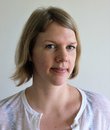Ambitious digital literacy course for researchers at the Faculty of Arts
This is your chance to improve your digital skills and gain input and inspiration helping you to develop new research methods. A course in digital methods and information processing – for both beginners and advanced users alike.
In the spring of 2018, the Faculty of Arts is launching an ambitious competence development process in which a group of researchers will be given inspiration and support to develop their research projects using digital tools and methods.
Many of the areas studied in the humanities are now either born digital or in the process of digitisation. This increases the amount of data available, and not least the range of options for using new research methods and tools. The faculty has applied successfully for funding for the course from the Agency for Competence Development in the State Sector. A group of researchers will be given help for a one-year period to develop research projects using large amounts of data and digital tools.
“This is a unique opportunity to take part in a cross-faculty academic development process and gain the skills needed to cope with the large amounts of data available in virtually all subject areas these days,” explains Mads Rosendahl Thomsen, a professor with special responsibilities who is chairing the steering committee.
Participants from many different research areas
There is room on the course for 35 participants, and the plan is that they should represent a wide variety of research areas and have different levels of digital literacy.
“Some of our researchers naturally know much more about analysing large amounts of data than others. Some researchers don’t need any help at all, while others aren’t really sure how to cope with the whole concept of digital literacy. We hope the course can show them a way forward. And bearing this objective in mind, the first seminar focuses on project development,” explains Thomsen. And he adds:
“Put simply, you could say that digitisation and the availability of large amounts of data offer us two great opportunities: On the one hand they can help us to support and confirm (or refute) our prior assumptions – while on the other hand they can reveal new patterns which we never noticed before, and which can lead us in entirely new directions. We hope that the course provides us with good examples of the potential of digital literacy.”
IT staff and librarians will also be involved in the project. The course is open to participants with all levels of expertise; and experience of digital methods is NOT a prerequisite as long as you are interested in improving your digital literacy.
What do the participants say?
The deadline for signing up for the course is 15 December 2017 (all you need to do is send your idea for a project to the steering committee), and some of the faculty’s researchers have already done this:
 Helle Strandgaard Jensen, associate professor, Department of History and Classical Studies:
Helle Strandgaard Jensen, associate professor, Department of History and Classical Studies:
“In my digital literacy project I aim to supplement and challenge my qualitative analyses by using quantitative methods enabling me to adopt an entirely new approach to my source material. My research field is the history of children’s television, and I want to analyse data from programmes broadcast on selected European TV channels with a view to identifying attitudes to children as a target audience during the 1970s. The data exists in digital form, but it isn’t very accessible. I have to collect it from many different sources and structure it before I can use it. And I hope the project will improve my ability to do this.”
 Henrik Bødker, associate professor, Department of Media and Journalism Studies:
Henrik Bødker, associate professor, Department of Media and Journalism Studies:
My digital literacy project investigates journalistic time over time. This involves analysing the front page of the Danish newspaper Berlingske Tidende from 1749 until the arrival of the internet. The public interfaces to the newspaper collections of the Royal Library don’t allow you to do this. Collaboration and the development of more specific digital tools are the only way forward. The project focuses on how journalistic texts and formats constitute temporalities. Based on previous studies, the goal is to study the occurrence and development of selected markers of time as well as their typography and (relative) position on the front page of Berlingske Tidende.”
Brief facts about the course
The course starts with an introductory seminar on 22 February 2018, including speakers from King’s College and the University of Göttingen, followed by four workshops during the spring of 2018. In the autumn the participants will be given inspiration and support for their projects, and the course ends with a seminar in January 2019.
If you have any questions about the course content, please send a mail to Mads Rosendahl Thomsen: madsrt@cc.au.dk.
All staff at the Faculty of Arts at postdoc/assistant professor level or above are welcome to apply for the course. Academic staff will be given the time needed to take part. More information about the course and how to apply
Contact HR consultant Louise Søndergaard louises@au.dk, who is the project coordinator of “Digital Literacy”.
